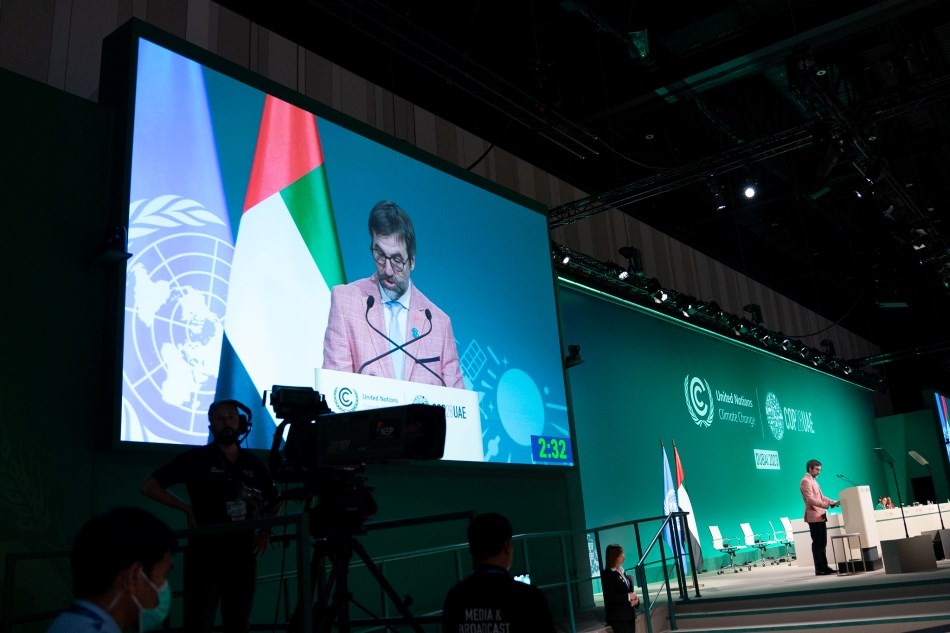After two weeks of negotiations, declarations, commitments, and pledges, world leaders at COP28 have yet to reach an agreement on one of the climate summits core documents.
Talks in Dubai have continued past the official close of the climate change summit on Tuesday after the omissions of plans to “phase out” fossil fuels from a draft text of the first global stocktake brought the summit to the “verge of complete failure.”
The global stocktake is an inventory of climate action that evaluates how well the world is meeting Paris Agreement targets of holding global temperatures below 1.5 C of warming from pre-industrial level. This document will help guide climate policies and commitments, and a new stocktake will take place every five years.
Many countries criticized the initial draft as being too weak to curb emissions. In place of calls to phase out fossil fuels, the document instead states that parties could take actions to reduce “both consumption and production of fossil fuels, in a just, orderly and equitable manner so as to achieve net zero by, before, or around 2050 in keeping with the science.”
Canada, the U.S., the U.K., Japan, and Australia are part of an umbrella group of nations demanding stronger commitments to transition off fossil fuels. Speaking for the group, Australian climate change minister Chris Bowen said they “will not be a co-signatory” to “death certificates” for island states threatened by rising global temperatures.
Environment and Climate Change Canada said in a statement Canada is still negotiating and working with other countries “toward an outcome that helps the world keep 1.5 C within reach.”
According to IPCC assessments, keeping warming at 1.5 C this century would require reaching net zero emissions by 2050, including the rapid phase-out of coal, oil, and gas. If global warming continues at current rates, scientists predict that temperature threshold will be crossed between 2030 and 2052.
"If we do not have strong mitigation outcomes at this COP then this will be the COP where 1.5 C would have died," Samoa environment minister Toeolesulusulu Cedric Schuster said during a session at COP28.
The Climate Action Tracker, an independent scientific project monitoring climate progress, said in a recent report that current policy pathways are unchanged since the 2021 climate summit in Glasgow.
"Two years after Glasgow our report is virtually the same. You'd think the extreme events around the world would be sparking action, but governments appear oblivious, somehow thinking treading water will deal with the flood of impacts,” said report lead author Claire Stockwell, policy analyst at Climate Analytics.
The report said Canada is moving in the wrong direction on several policy issues, like relying on carbon capture, “abated” fossil fuel development, and “unrealistic technological fixes” to meet climate goals.
Though Canada is a member of the umbrella group pushing for stronger language in the COP28 deal, it has stopped short of agreeing to fully cutting fossil fuel use. In a statement released on Dec. 12, Canada again said it is committed to “phasing out unabated fossil fuels,” meaning those which don’t use carbon capture and storage for emissions.
"We're hearing the words 'unabated' across these climate talks, but governments must stop trying to adopt false solutions like carbon capture and storage with fossil fuels - this is simply the fossil fuel industry attempting to extend its life, when it needs to face up to the reality of a fossil fuel phase-out," said Professor Niklas Höhne of NewClimate Institute, a member of the Climate Action Tracker team.
An updated version of the stocktake document is expected to be released Dec. 12.



